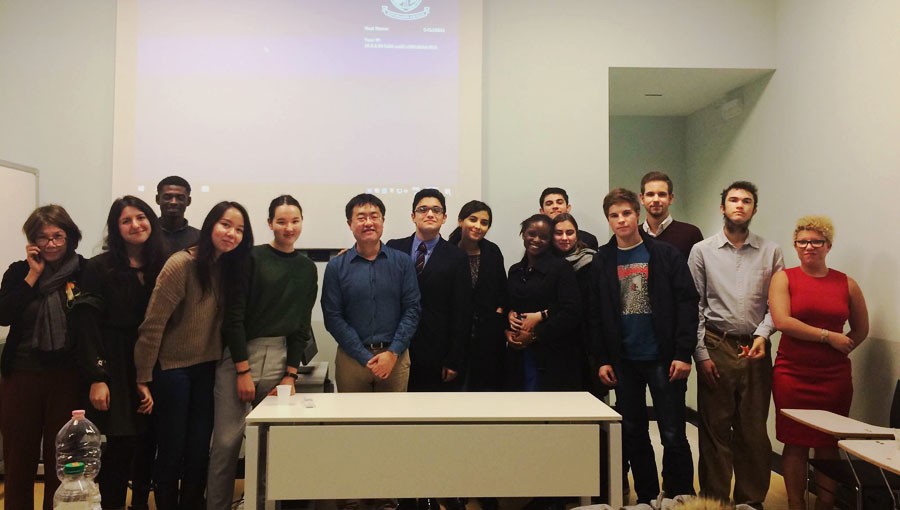Dr. Bin Liu from UN Food and Agriculture Organization on Food Loss and Waste
John Cabot University welcomed Dr. Bin Liu, an officer of the Nutrition and Food Systems Division, at the Food and Agriculture Organization (FAO) of the United Nations on Thursday, November 8, 2018. The event was sponsored by the Universities Fighting World Hunger Club,with the help of Professor Margaret Kneller, who teaches Natural Science courses at John Cabot University.
First, Dr. Liu explained the FAO and its members: countries, organizations and associate members. He gave the background to FAO conferences, and policies, budgets, and recommendations that result from these conferences. He even showed some recent FAO produced videos, including one on the seventeen Sustainable Development Goals, to emphasize how FAO communicates with a global audience.
Then, Dr. Liu focused on FAO’s work in domestic and international food waste and loss management. He helped us understand the FAO definition of Food Waste. Uneaten food is categorized as lost or wasted according to when it falls off the food chain. Food waste refers to when consumers throw out excess food or food that has spoiled. Food loss occurs earlier due to inefficiencies in food production that causes it to lose nutritional value or even need to be discarded.

Students and Dr Bin Liu (6th from left) and Professor Kneller (first from left)
Dr. Liu discussed food crisis areas and the issue of humanitarian aid through food. He also emphasized FAO’s work on sustainable aid that aims at increasing resilience towards global warming in farmlands of the developing world. He provided a specific example of rice loss, in steps of the food chain, in Timor-Leste: with recommended adjustments, not only is less rice lost, but the carbon footprints will decrease. This was one example of FAO’s agriculture development programs that provide incentives such as seedlings, silos, and agro-chemicals for third world countries, as well as facilitated food storage, which will all help reduce food loss.
When it comes to consumption, at the end of the food supply chain, Dr. Liu explained that the quality of food must always come before quantity, as nutrition is key. However, Dr. Liu was quick to acknowledge that not all countries can afford this luxury. Developing countries must sometimes prioritize quantity over quality because of financial constraints. Additionally, food sanitation standards can increase costs, in some regions. As a result, FAO sets these standards at a minimum to ensure even developing countries can trade crops at the international level, to gain income.
Students were keen to learn about FAO’s structure and were amazed at how the organization manages to integrate scientific work like Dr. Liu’s with political and social interventions. The result is a truly well-rounded organization that fights environmental issues ranging from world hunger to climate mitigation.
As a final call to action, Dr. Liu urged everyone to be proactive in minimizing food waste in everyday life. It can be done by buying the food needed most, purchasing items from local farmers, and raising awareness of the issue.





